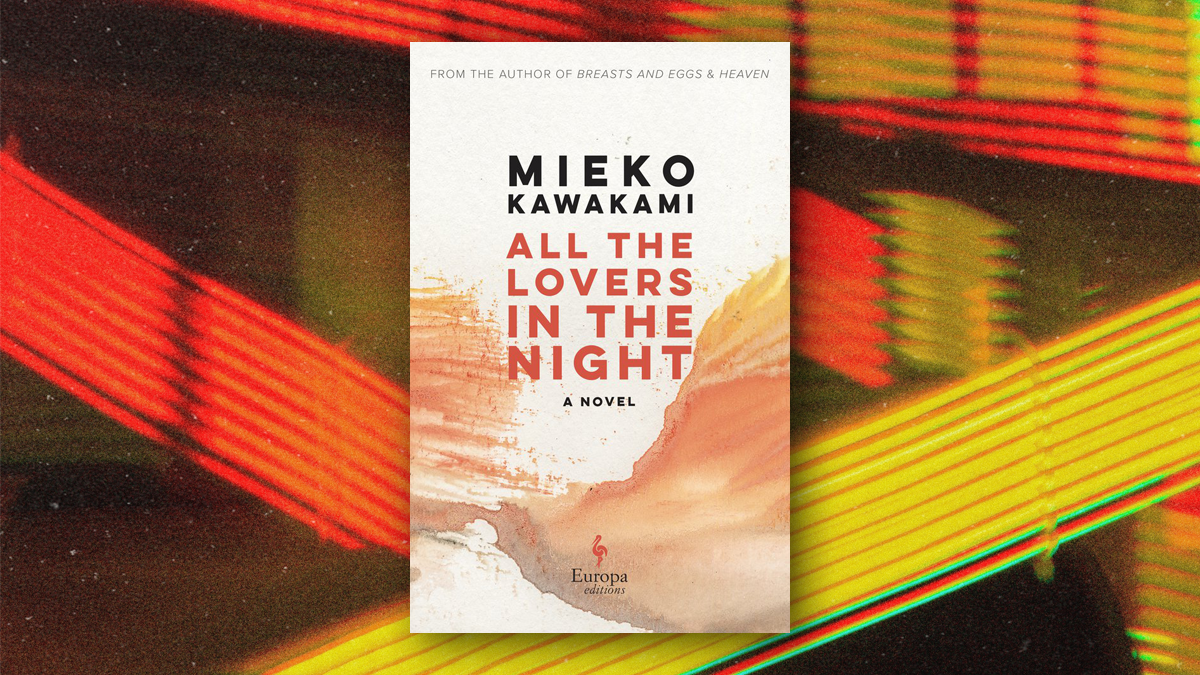Freedom is a woman’s choice in ‘All the Lovers in the Night’
by Jade Green
From the very first page, as a character questions the beauty of the night, Mieko Kawakami demands our full attention. Her work is not the kind of writing to be skimmed over or half-read. Every word, every luscious detail and philosophical contemplation, must be savoured to be fully appreciated. We are contemplating along with her. Meditating on each page. More than any contemporary author I can name, her work has the effect of making you feel more present, more awake to the minutiae of life, of light, of womanhood. At a nifty 219 pages, All the Lovers in the Night (translated into English by Sam Bett and David Boyd) packs an impressive punch.
The story follows Fuyuko Irie, a woman in her mid-30s living in Tokyo who has made the decision to go fully freelance. There’s just one problem. Although Fuyuko seems to enjoy her work as a proofreader, dedicating her days to hunting mistakes amid infinite pages of galleys, her newfound freelance freedom only serves to highlight her loneliness. Something happened to Fuyuko, long ago, which caused her to seal herself off from the world as a means of self-protection. And although she has relationships in her life – a co-worker, a friend from school, a man she keeps running into – her deep, unfaltering aloneness cannot be ignored. It has become her identity.
Fuyuko knows something is wrong, but, like many of us who have endured trauma in our lives, does not know how to deal with it. This thing inside her is trying to push its way to the surface. As a way of coping with the threat of destructive pain, Fuyuko starts to drink.
The slide into casual alcoholism happens so deftly, that as a reader you barely register the tragedy of what is happening to Fuyuko. It’s a testament to Kawakami’s skill and maturation as a writer that the pieces of the story come together entirely beneath the surface of what is happening on the page – almost like her subconscious mind is communicating directly with the reader’s. How we should feel about Fuyuko’s arc is left to us to decide, with emotions rendered in the spaces left behind, the things Kawakami chooses to leave out. The theme of light is returned to again and again throughout the book, and the question of what happens to light when it disappears is a gorgeously evocative metaphor for what is going on in Fuyuko’s inner world.
All the Lovers in the Night feels like a spiritual descendent of Kawakami’s earlier Breasts and Eggs, in which she established herself as a master of creating nuanced female characters. Fuyuko interacts with a range of women, who, despite being similar in age to Fuyuko, are at very different stages of life. She meets married women, women playing the field, childfree women, family women, career women, women who uplift one another, and women who tear each other down. Judgement of another woman’s life choices is a way of concealing vulnerability, of covering up deep pain while avoiding the ultimate, omnipresent question: ‘have I made the right choices?’. This question is returned to throughout the story.
‘Had I ever chosen anything? Had I made some kind of choice that led me here?...The job that I was doing, the place where I was living, the fact that I was all alone and had no one to talk to. Could these have been the result of some decision that I’d made?’ (p.182 All the Lovers in the Night, Picador)
Fuyuko’s major flaw is that she is unable to ask for what she wants. Her rich inner life of thoughts, desires and emotions is at odds with her painfully relatable inability to express herself in front of other people, or to make choices based on her own needs. It's like she has lost her connection to her true Self – like the trauma she has experienced has forced her into hiding. Staying within her safe zone and avoiding vulnerability at all costs is the only way she knows how to survive. We may judge her for drinking, but really, can we blame her?
All the Lovers in the Night is a richly-textured exploration of the choices we make as women, and the choices that are sometimes made for us – or taken away from us. Like Breasts and Eggs, the blood that runs through the veins of this story is the nature of transformation, and the awakening of female spirit in the face of patriarchal control.
Follow Jade’s work

